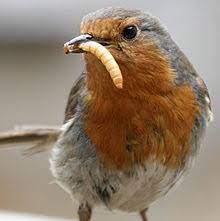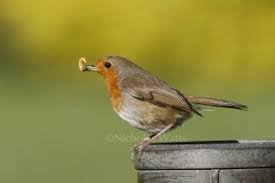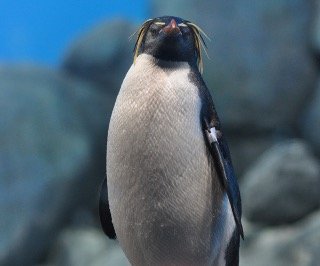Although robins are common backyard birds, they rarely feed at bird feeders. To that end, what do robins eat, and how can birdwatchers attract robins with enticing and healthy treats?
Because of its widespread familiarity and popularity in the British Isles, the European robin has earned the unofficial title of “national bird of the United Kingdom.” These birds are frequently depicted in Christmas-themed media, such as greeting cards and ornaments.
Insects and other invertebrates make up the bulk of the European robin’s diet. They are adaptable eaters, though, and will eat a wide variety of plant foods, not just the typical small seeds and berries. The robin’s insect-rich diet is supplemented with berries and grains in the fall and winter.
What sort of food do robins prefer?

Robbins eat a wide variety of foods, but if you want to attract them to your garden, try offering these items:
- Fruit
- Such as sunflower seeds
- Suet
- Peanuts, either ground or crushed, without salt
- Raisins
- Shredded cheese, mild in flavor (in small amounts)
- Mealworms, either fresh or preserved in dry form.
Purchasing a bird feed mix is a simple way to provide these nutrients to your feathered friends. Make sure it is safe for robins by reading the label to determine what ingredients it contains.
The European robin spends the spring and summer eating its weight in ants, worms, and beetles. Because of their soft beaks, robins can only eat the smaller, softer seeds found in most commercial bird seed mixes. In its place, they should purchase a softball, songbird, or thrush seed mix, which can be found at any local garden center or other store selling bird food.
A Guide to Feeding Robins

To attract robins, which are ground feeders, it is best to invest in a bird table located out of reach of cats, preferably one with a roof and multiple perches. Prepare a feast for the robins by putting out food such as fruit, seeds, suet, and live or dried mealworms (if using dried, soak them in water first).
If you want to attract robins, try offering them fat balls or bars. Make suet or lard balls or bars by melting the fat and adding fruit, nuts, and seeds before letting them harden in your feeder.
Keep in mind that robins, like all birds, require clean water to survive.
What do Robins eat in Summer?

In the summer, robins feed on a variety of insects and other invertebrates, including:
- Earthworms
- Termite grubs and insect maggots
- Caterpillars
- Arthropods like slugs and snails
- Spiders
- Beetles
- Earwigs
- Fluttering insects like moths and butterflies
- Woodlice
- Insects such as grasshoppers and crickets
- Termites and ants
- Wasps and bees
- Termites are smaller than flies
Also, know Do Starlings Migrate?
What do Robins eat in Winter?

During the colder months, robins eat more of the following:
- Mulberries
- Blackberries
- Raspberries
- Strawberries
- Elderberries
- Juniper
- Honeysuckle
- Berries of the holly tree
- Cherries
- Crabapples
- Hawthorne
- Miniature, fluffy grains and seeds for the backyard birds
- Toys made of suet and fatty balls
What to Feed Robins in the Yard?

Providing natural food sources is the best way to attract American robins with tasty treats, as they don’t eat many foods that are common in feeders. There are a number of things you can do to your yard to attract birds besides the basics, such as:
- To create a fence or a wall of privacy, plant juniper hedges that bear berries.
- Trees with pretty spring flowers and plenty of fruit can be found on the cherry and crabapple tree family.
- Grow grapes along a fence for both aesthetics and practicality.
- Foraging robins will appreciate a healthy mulch bed or untouched leaf pile.
- Holly bushes should be planted in flower beds and under trees.
- We need to use fewer insecticides if we want birds to take over pest control.
- Morning lawn watering attracts earthworms and helps keep them on the grass.
- Robbins will be able to forage more easily if the grass is kept short.
Don’t forget that birds require fresh water for drinking and bathing every day. And keep in mind that no matter what kind of birds you’re feeding, you should never, ever, ever put out milk because it can cause severe illness.
The best policy is to never feed birds bread that you’ve left out for them. While it will keep them from going hungry, it won’t give them the vitamins, minerals, and energy they need to get through the day. This is a major problem during the colder months when birds require more food of higher quality to maintain their body temperature.
A Note About the European Robin

However, it is important to note that the European robin is just as well-loved and well-known in Europe as the American robin is in North America. Although the European robin and the American robin are not related, they do share a similar diet. The European robin will be just as interested in the same sorts of natural foods as the American robin would be, such as worms, insects, fruit, and berries. However, if you want to attract and sustain a diversity of robin species, it is best to use plant species that are indigenous to each species’ range.
Knowing what kinds of foods robins eat can help bird watchers provide a more welcoming environment for robins year-round. Robins bring cheer to any garden with their melodious songs and nocturnal foraging.
Also, robins will happily use a bird feeder. Birds aren’t picky eaters in general, but they might pass up feeders if they’re too difficult to reach. In general, robins aren’t afraid of people, which is why they’ll confidently follow gardeners and perch close by.





